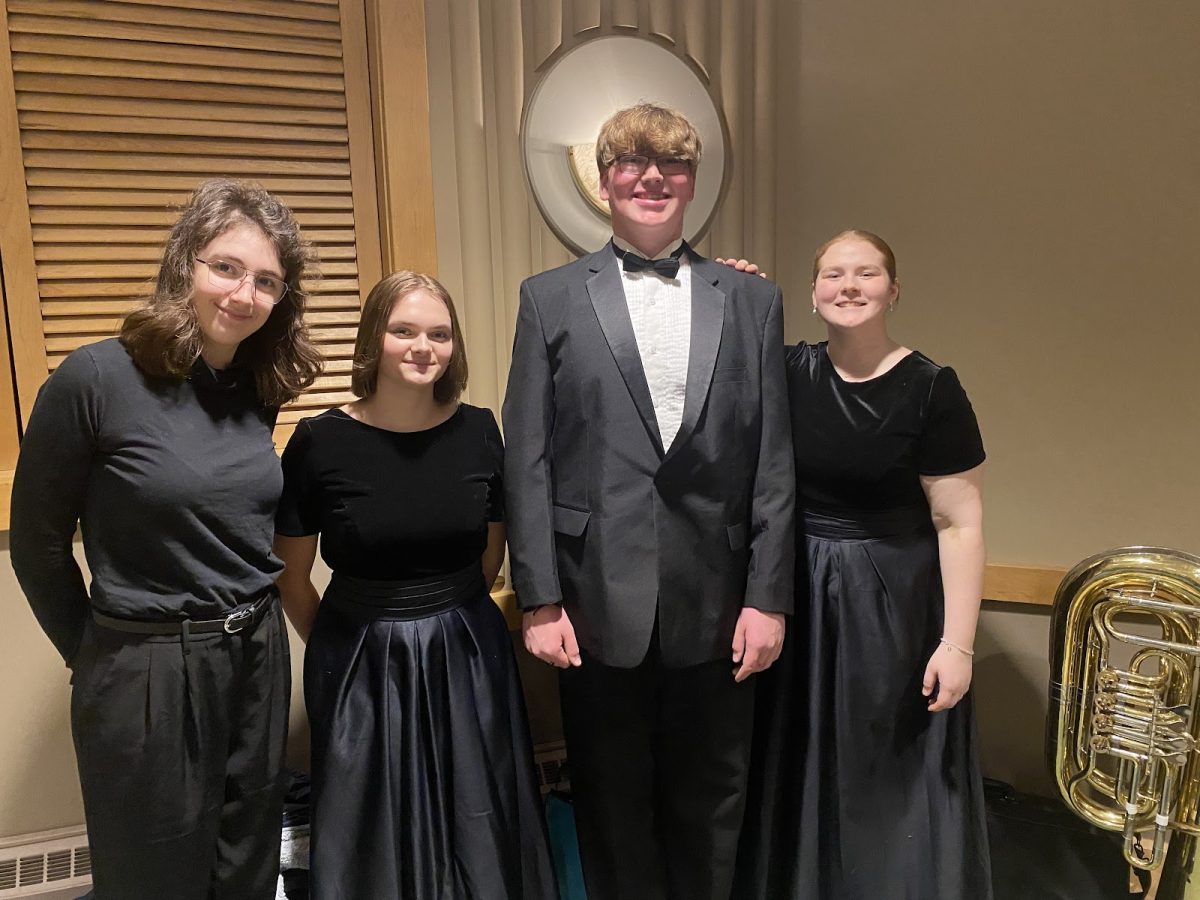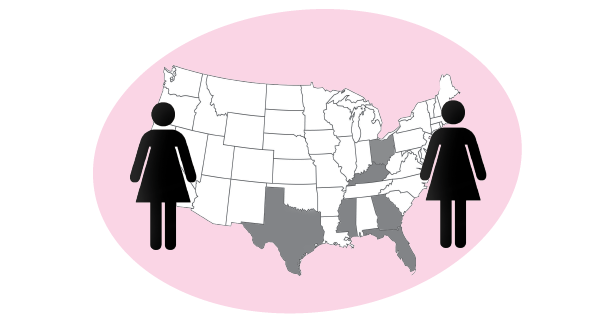BY ANNA WOLFINGER
Ohio Senate Republic leadership discusses the topic of abortion with students
Governor Mike DeWine, has just recently signed a bill that has raised much controversy across Ohio, and even the country. Ohio has now become the third state this year and the sixth state overall to pass the Human Rights Protection Act, also referred to as the “Heartbeat” bill. This was originally designed to challenge the Roe v. Wade case, which legalized abortion. DeWine pledged against former governor John Kasich’s veto of this bill in 2016, when Kasich pronounced it unconstitutional. This bill will be effective starting July 1 of this year.
“The ‘Heartbeat’ bill is about life,” said Senator Kristina Roegner, the sponsor of the “Heartbeat” bill. “I think that high school students need to realize that this is in fact human life. I hope that students know that even before you vote, you have a voice and can advocate your opinions.”

The “Heartbeat” bill prevents women from getting abortions when their unborn child is detected to have a heartbeat. Typically, this is around five to six weeks into the start of a pregnancy.
Planned Parenthood is a non-profit organization that aims to aid in contraception, family planning and reproductive problems.
“Our patients in Ohio and across the country deserve the right to control their own body, life and future, no matter where they live or how much money they make,” said Dr. Leana Wen, President of Planned Parenthood Federation of America, in a press release refuting the “Heartbeat” bill. They did not get back to Bruin in time for publication.

The Ohio Senate originally passed this bill in March, however, the House Health Committee made multiple changes before sending it to the House floor to be voted on. The committee’s version allowed for transvaginal ultrasounds, which are able to detect a fetus’ heartbeat even earlier than the five to six week period. Doctors are allowed to use this device, however it is not required. It was then passed by party-line vote, which means that those who are affiliated with the same political party voted similarly. The Ohio House passed the bill with all Republicans oting for, and all Democrats voting against, with the vote of 56-40.
“Women don’t want to get abortions,” said pro-choice student Maddie Kritzell, 11. “Their goal obviously isn’t to murder their child. The seriousness is known and taught through social media especially, but also through later pregnancy complications because of these procedures such as infertility.”
This “Heartbeat” bill does not have any exceptions for rape victims, which has raised many questions among pro-choice supporters. The only exception that this bill contains is in emergencies when the women’s doctor recommends an abortion in order to save the mother’s life, or a major bodily organ is at risk.
“Rape and incest only make up 1% of all abortion cases, which is a very small but high profile discussion topic,” said Roegner. “From the Viability bill to the Incapable bill, to my recollection, had no rape or incest exceptions.”
There were around 135, 755 reported cases of rape in the U.S. in 2017, and around 5% of them were impregnated. Among those victims, 50% of them underwent an abortion, and 5.9% put the infant up for adoption after birth.
“My heart goes out to all rape victims,” said pro-life student Jack Grice, 11. “However, I do not believe that justifies killing an unborn child. In those circumstances, there are better options such as adoption.”
Many pro-choice supporters argue that adoption is not an option for everyone. However, many pro-life supporters say that adoption is one of the best options for the mother.
“Foster homes are filling up,” said pro-life student Taylor Nagy, 12. “However, thousands of families wait everyday to get a foster child because they can’t get pregnant, they are homosexual or other reasons.”
There are many other ways that the Senate Republicans say that they try in order to decrease the amount of abortions. Some of those ways are through clinics, health care, social services and education spending.
“Addressing Ohio’s rampant infant and maternal mortality rates and creating equitable access to health care is what they should be focusing on,” said Iris Harvey, President and CEO of Planned Parenthood.
But Obhof and the Senate Republicans say they are attacking these issues.
“We re-prioritized funding to direct more funding to pregnancy centers that offer free care to people who need it,” said Ohio Senate President Larry Obhof. “There are hundreds across the state where women can seek care and the mother and the baby can both receive medical care. We focus on trying to lower the infant mortality rate over the last five or six years. We recognize that being pro-life is about more than just decreasing abortion, but it’s also making sure that the services necessary at other stages of life as well.”

Ohio Senate President Larry Obhof 
Ohio State Senator Kristina D. Roegner
Another way the Senate Republicans says that they try to minimize the number of abortions is simply through educating the public.
“Information is so important,” said Roegner. “Some women think that it’s just fetal tissue, but if they are informed, the doctor is required to listen to the heartbeat even before this bill was passed. We also promote both adoption and foster care as well as other things. Many women think that they have no choices and that abortion is their only option.”
Women who violate this new abortion law will have committed a fifth-degree felony. This can be up to a $2,500 fine in the state of Ohio along with one year in prison. This money will then go to the support in adoption and foster care services.
Another topic of discussion that the “Heartbeat” bill has brought to the surface is the Roe v. Wade case and its relevance today. The Roe v. Wade case legalized abortion in America, and this bill, if accepted nationally, could overturn that law.

“I feel like the Roe v. Wade case should be overturned and hopefully this bill in Ohio will serve as an example for the federal government to follow suit,” said Grice.
Pro-life and pro-choice supporters alike are both wondering what the future looks like for the rights of mothers and children.
“The Supreme Court is the most conservative it has been in the past 70 years,” said Obhof.
There are many other states that are currently on the topic of abortion at the state level and many are wondering if it will be taken into account at a national level.

![Wadsworth's Class Of 2025 Walks At Graduation Ceremony [Photo Gallery]](https://wadsworthbruin.com/wp-content/uploads/2025/05/IMG_9018-1-1200x800.jpg)


































